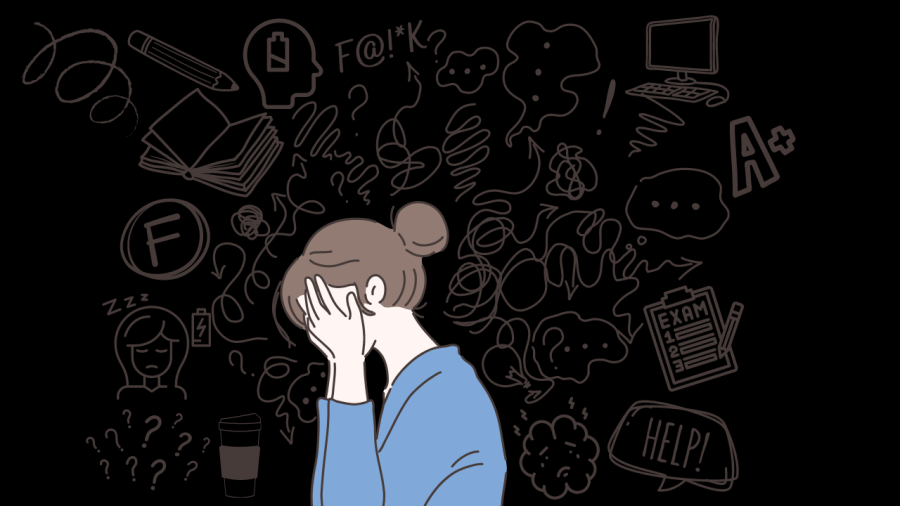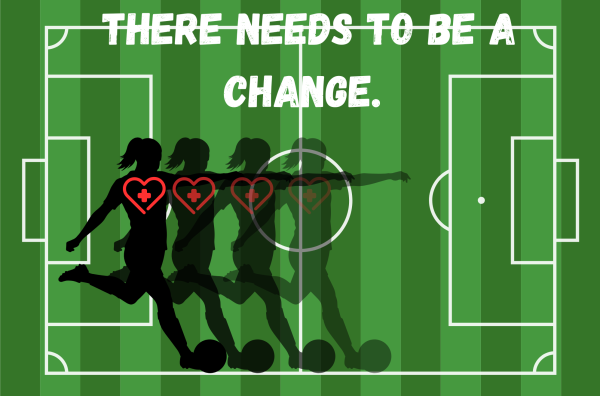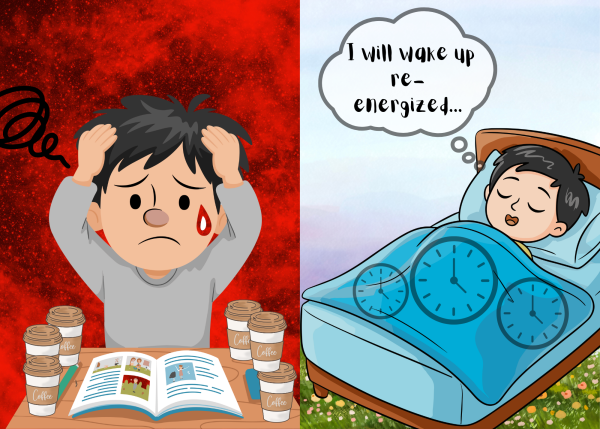Breaking our backs to make a good grade: How final exams carry more weight than necessary
The month of December for a high schooler means winter break is finally on the horizon. The two weeks of vacation- no school, no homework, no unwanted social interactions- is almost in arm’s reach. With only one caveat. Final exam season.
Most final exams look the same: you are given one and a half hours to complete an approximately 50 question test that assesses your knowledge on everything you have learned this semester. These assessments are usually given in multiple choice format, and are worth around 12-20% of your entire semester grade.
As someone who is not very good at multiple-choice tests, I personally never understood why these kinds of tests were worth so much. After all, how much can you really extract about a student’s academic abilities from one single assessment?
According to a study done by cognitive scientists Daniel Willingham and Robert Bjork, not much. After testing college students to see how much they remembered two weeks after a test, they forgot over 90% of the material. If students were forgetting material after two weeks, they are also forgetting material from all the way back to the start of the semester, thus showing the lengths that students need to go to cram for final exams.
“How are we gonna jam-pack everything that we learned in one semester into a test? I barely remember anything. I just blank,” sophomore Brittnay Salazar said.
Additionally, traditional final exams also induce a lot of test anxiety, a phenomenon where one experiences a “fight or flight” sensation that makes the stomach churn whenever taking a test. Even if you have a solid grasp on the material, physical symptoms such as nausea, fatigue, or even a foggy brain, make it difficult to concentrate.
“It’s [test anxiety] like a weird, like, anxious feeling- like throughout the whole test, like, I lose a lot of memory, like I’m all cloudy,” sophomore Paul Burch said.
The fact that schools continue to push these kinds of assessment methods is more than enough evidence to show how the education system does not necessarily value learning – rather, they use these assessments as tools to see how much students can memorize in a certain period of time. Capitalist societies value memorization much more than true learning, because memorization breeds complacency, while learning creates thinkers.
That being said, although there have been some pushes to go back to “normal”, thanks to the pandemic, and the support of many of our school’s departments, teachers are looking at new, nontraditional ways to assess their students’ knowledge without giving one giant test. Teachers have moved to giving final projects, breaking up the final into different chunks and giving tests that are worth only a test grade, all of which are methods that I greatly appreciate.
Still, with everything students and teachers are doing to create change, my written opinion alone will not change the fact that there are some teachers that are still going to administer traditional final exams administered this December. For more information on how to prepare, check out North Star News’s article on everything you need to know for final exams.

Olivia (Liv) Frey is the Editor-in-Chief and Opinion Editor of North Star News. Ever since joining NSN her freshman year, she has grown a deeper love...








Cynthia Fey • Dec 6, 2022 at 9:30 am
Liv, thank you for sharing the students’ perspective on high stakes final exams. (As some educators say, “High Stakes are for growing tomatoes, not students.”) Thank goodness that there is a larger movement in the U.S., toward Equitable Grading. Our district is joining this movement with the distribution of Joe Feldman’s book Grading for Equity to all faculty and the formation of study groups to understand and apply its ideas. Our Strategic Plan for ’20-’25 has prioritized the Action Step of “Assess student learning through a grading for equity lens that emphasizes growth.” Let’s keep talking about how students can partner with teachers towards demonstrating what they have learned!